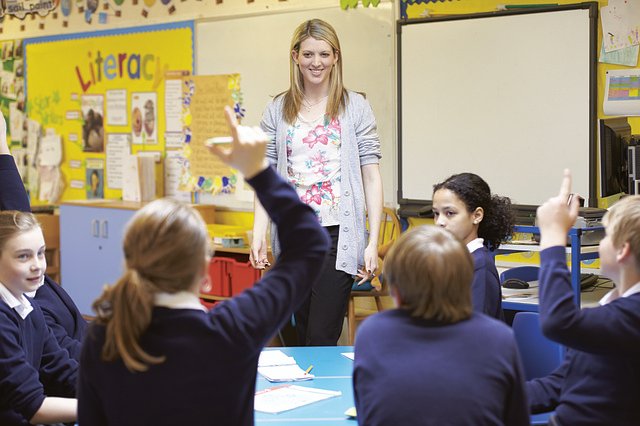The key difference between teacher training and teacher education is that teacher training involves learning real-life classroom situations while teacher education is knowledge about modes of learning and instruction. Teacher training is the practical work, skills, and performance of a teacher in a classroom. Teacher education focuses on methodologies and all the theoretical work. Sometimes, there may be an imbalance between these two aspects since a real-life classroom situation cannot be predicted.
Key Takeaways
- Teacher training focuses on the practical skills and performance of a teacher in a classroom, while teacher education is about the knowledge and understanding of teaching methodologies and theories.
- Teacher training typically involves hands-on experiences, such as managing a classroom, identifying student skills, and maintaining records, whereas teacher education prepares prospective teachers for what to expect and how to manage a real-life classroom environment.
- There may be an imbalance between teacher training and teacher education, as the real-life classroom situation cannot always be accurately predicted or replicated in training and education settings.
What is Teacher Training?
Teacher training is considered a very important section of being a teacher. It can be defined as courses and qualifications that teachers follow and receive at the beginning of their careers. Teacher training can also be defined as the acquisition of skills to obtain specific goals in real-life situations. This involves closed skills and aims to improve the performance of teachers. For teachers, training usually includes several aspects like how to manage a classroom well, identify students and their skills, maintain a grade book, or calculate reading fluency scores. This was initially carried out in demonstration or model schools attached to respective teacher training colleges, then the schools in the neighborhood, and recently in various schools and colleges in different community settings. Sometimes these schools are criticized because of the unreality of their teaching settings. That is because some schools are more academically oriented and have stopped playing the experimental role.
Due to the differences between the methods and approaches taught in colleges and the environment in a classroom, prospective teachers face various difficulties. Teacher training courses mainly comprise practical teaching, observing peer teaching sessions, theoretical study, and paid employment in schools. These make up a training period of several years, and the number of years varies from country to country. Sometimes, in some countries, experienced teachers are not satisfied with the standard of teacher training. This is because they think that university and training college staff lack the updated, first-hand experience necessary for the training to be successful. Most of the time, the certification given to the teachers by these institutes are valid only within that particular region or the country. If they are to teach in another region, they need to undergo a training session again to obtain the license.
What is Teacher Education?
Teacher education refers to procedures and policies created to equip prospective teachers with the knowledge, skills, behaviors, and attitudes that are required for them to perform effectively in a classroom or school. All the theoretical work is included in this section. This improves the mind of teachers.
Generally, teacher education is done before the teacher training session and prepares the prospective teachers to what to expect and how to properly manage a real-life classroom environment. This is divided into three stages:
Initial teacher education (pre-service)
National colleges of education, teacher training colleges and teacher centers provide in-service teacher education and professional development
Induction
Providing guidance and support during the first few years as a prospective teacher
Teacher development
In-service practice for prospective teachers
What is the Difference Between Teacher Training and Teacher Education?
The key difference between teacher training and teacher education is that teacher training is learning real-life classroom situations while teacher education is knowledge about modes of learning and instruction. In addition, teacher training is about improving performance and teacher education is focused on improving the mind.
Summary – Teacher Training vs Teacher Education
Teacher training involves learning real-life classroom situations. This includes classroom management, identifying students and their skills, keeping records and scores, and focuses on teachers’ performance and skills in a classroom. There are various institutions and model schools to provide this training, and this process takes several years depending on the institution. Meanwhile, teacher education focuses on improving a teachers’ mind and knowledge. This method is about the theoretical work, methodologies, and procedures of teaching. Thus, this is the key difference between teacher training and teacher education. Generally, teacher education is done prior to teacher training or parallel.
Reference:
1. “Teacher Education.” Wikipedia, Wikimedia Foundation.
2. “The Study of Educational Principles.” Encyclopædia Britannica, Encyclopædia Britannica, Inc.
Image Courtesy:1. “Teacher teaching, writes, mathematical, equations, blackboard., education, school concept, concept., blackboard, board” (CC0) via Max Pixel
2. “Teacher-learning-school-teaching-4784917” (CC0) via Pixabay
